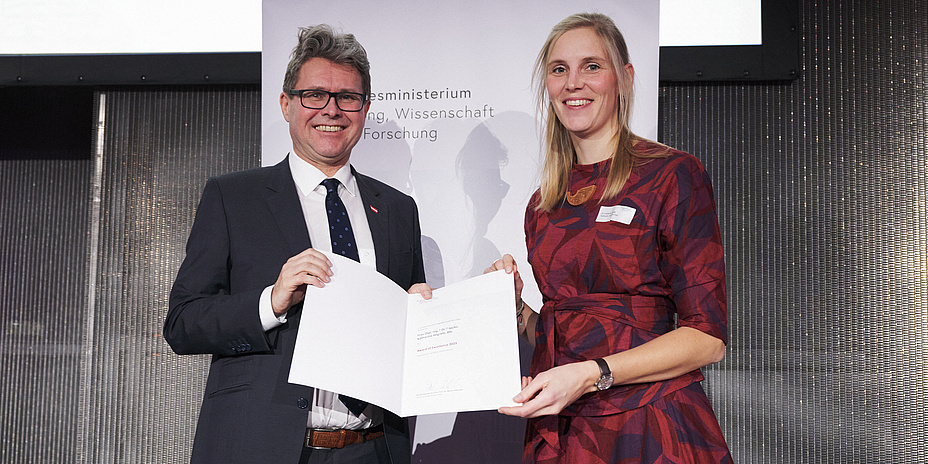Using Giant Magnets to Create Sustainable Batteries

Another battery leak ... so annoying. And poisonous. But it soon may be history. At least according to researchers like Katharina Hogrefe, who want to replace liquid electrolytes in batteries with solid ones.
This would not only eliminate the aforementioned hassle, but also ensure more safety, energy density and sustainability. “Today, lithium materials are mainly used as electrolytes in batteries,” explains the researcher. “Lithium is a very light element and allows the ions to move through it quite freely.” However, lithium is also one of the rare metals and a critical resource. Hogrefe and her colleagues would therefore like to replace lithium with different solids, such as ceramics with sodium. But there is still a lot to do before then, because the challenges involved in switching from a liquid to a solid are considerable. “Electrolytes in batteries must be able to conduct the ions. This is much easier with a liquid than with a rigid solid. They have much less freedom of movement there. If the ions are too slow, the battery will either not work at all or only very poorly.”
Katharina Hogrefe’s favourite method of analysis in her research work is magnetic resonance spectroscopy, in which particles that are invisible to humans can be analysed on the basis of their magnetic properties. “These are giant magnets that generate great magnetic fields.” She is primarily concerned with optimising the conductivity of the solid, doping it with other substances and possibly creating structural disorder.
Research in the time of the Covid-19 pandemic
As a chemist she has been fascinated by materials science since the beginning of her studies. She specialised in advanced materials science during her Master’s degree and worked on a titanium alloy. Her subsequent doctorate, in which she worked on sodium ceramics as solids for batteries, coincided exactly with the coronavirus pandemic and was characterised by difficult working conditions: “As chemists, we are not allowed to work alone on experiments, but during this time we were also not allowed to be in a team in the lab. It was difficult.” And scientific networking also fell by the wayside. “Direct scientific dialogue is very important. Many groups work on the same material, but all from different perspectives. Together, we can build a much more complete picture than each group on its own.” This was a problem that she was able to solve, at least for herself, after the pandemic with a research stay at St Andrews in the UK and several conference visits. In 2023, her efforts were recognised with two prizes – the Hans List Prize from the Hans List Fund and the Award of Excellence from the Ministry of Education, Science and Research.
In concert and on the mountain
In addition to science, Katharina Hogrefe has been passionate about music since childhood, playing classical guitar in an ensemble and as an enthusiastic singer “One of the reasons I chose Gothenburg in Sweden for my semester abroad during my Bachelor’s degree was because it has a wonderful concert hall,” she explains. She also enjoys taking things apart, tinkering with her Puch bike, and swimming and hiking. “For example, last year I hiked from Graz to Neumarkt in Styria – 130 kilometres in six days. I love hiking because it’s all you do and nothing else. I feel very much myself and am happy about the smallest things – a beautiful flower or that it’s not raining today.”
Kontakt
Katharina HOGREFE
Dipl.-Ing. BSc
Institute for Chemistry and Technology of Materials
Stremayrgasse 9
8010 Graz
Phone: +43 316 873 32320
katharina.hogrefe@tugraz.at




